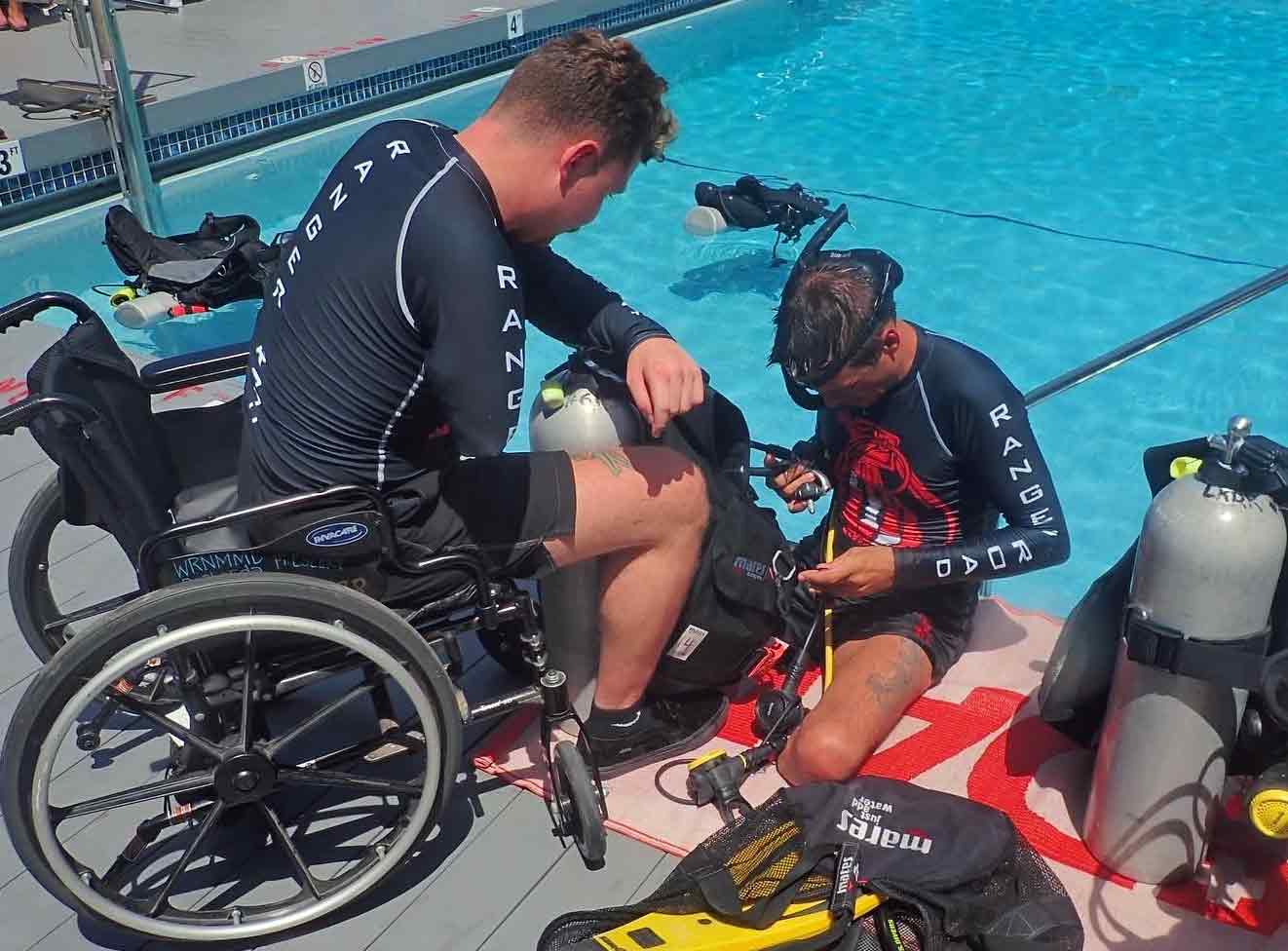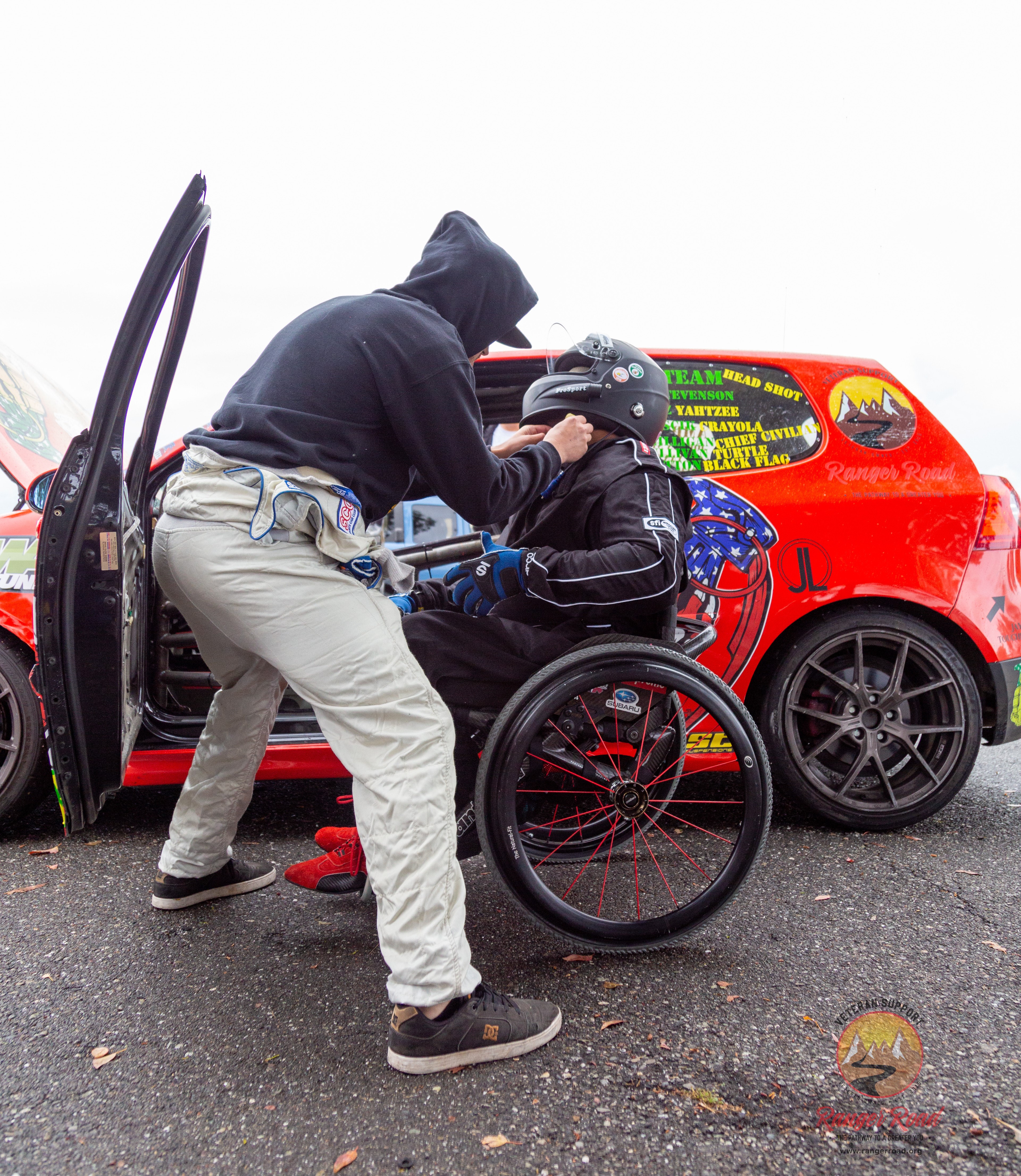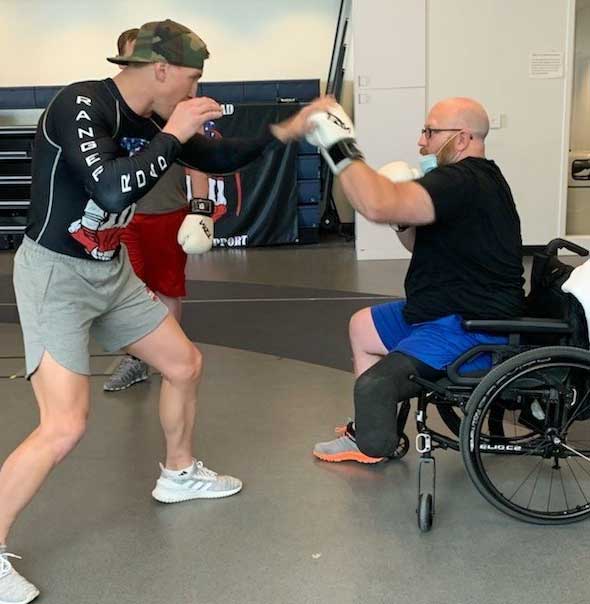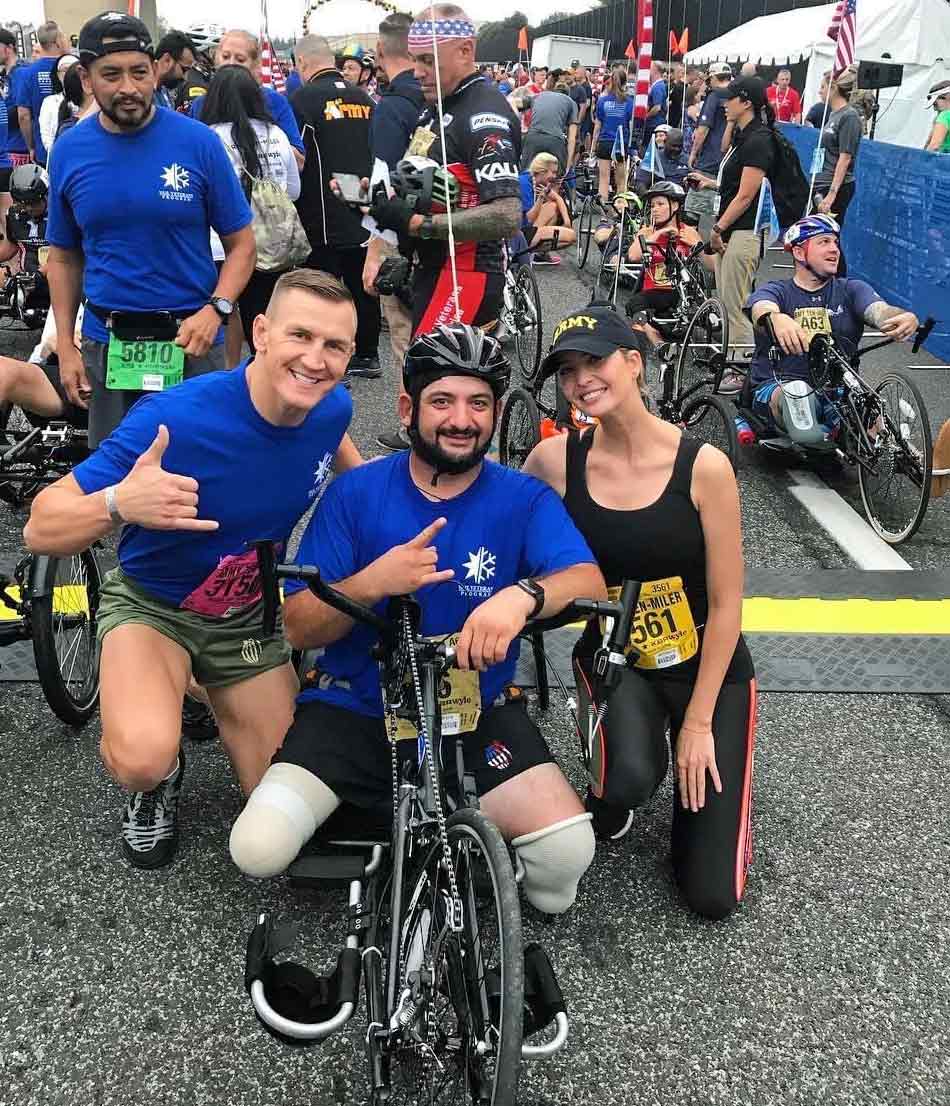(K-LOVE Closer Look) – “A lot of our veterans -- especially door kickers and guys that have been through a lot of stuff in the military -- we don’t want charity,” explains Mikhail Venikov, former MMA fighter, veteran of 2nd Ranger battalion and founder of Ranger Road. "We put together fun events that vets can partake in and not feel like a charity case.”

No arms? No legs? No problem! “Whether you’re an amputee, double amputee, triple amputee, you’re paralyzed, our skydiving, our scuba, our car races -- they are all adaptive capable.” In fact, the leaders and trainers at RR events are themselves disabled vets. “Our skydiving program manager, he’s an 82nd airborne guy, double amputee.”

Ranger Road Motors provide racecar driving experiences for disabled vets with pedal-steering and trained volunteers who assist vets with getting in and out of the car. Other programs include Operation Rustic Healing, where vets and their families go on hunting or fishing trips. Gut Check is a high-octane obstacle course where vets with different levels of skill and abilities team up to get to the finish line with litter carries or wheelchairs and piggyback carries – whatever it takes. “At the end of all this, being able to accomplish and help someone that couldn’t get through the obstacles on their own, it’s an accomplishment but its also a big lesson – a lot of things are achievable as long as you're working together.”
Ranger Road also treks monthly to Walter Reed Medical Center near D.C. and Brooke Army Medical Center (BAMC) San Antonio to provide soldiers in treatment at the military hospitals with adaptive boxing and fitness training.

Sometimes a veteran is struggling with disabilities that are invisible, as evidenced by the high risk of suicides in recent years.
Participation in these events can bring a soldier camaraderie and a renewed sense of purpose towards mental health and healing. Vets who come to Ranger Road often reach out after an exhilarating day of jumping or diving and tell someone on the side, hey, ‘I’m struggling with my wife, my job and addiction I need to address,” Venikov says. “We are that first step in the right direction,” opening an opportunity to connect them with other non-profit help for mental, emotional, or relational needs.
“Maybe it’s difficult for the average person to understand -- they’ve seen a lot been through a lot -- some of their friends and family members maybe, their brothers and sisters they served with never made it back -- and so there are underlying things that need to be addressed.” Ranger Road strives to provide a space and a place for hurting men and women to ask for help. “We try to assist and get with those veterans and address those disabilities and those needs the best we possibly can.”



